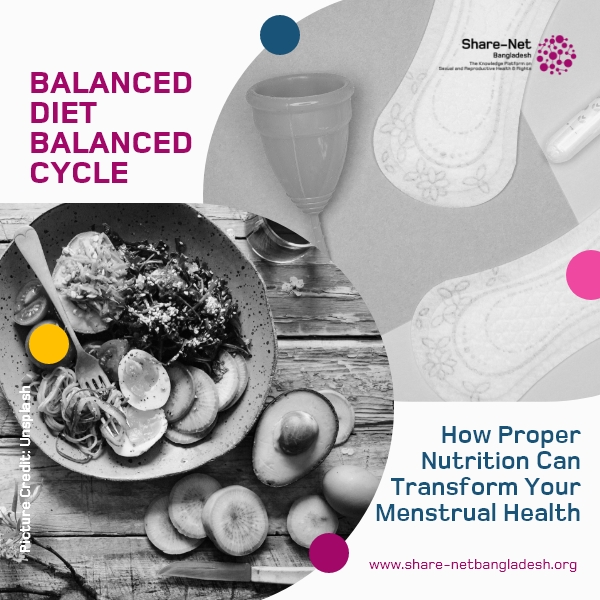Balanced Diet, Balanced Cycle: How Proper Nutrition Can Transform Your Menstrual Health
“Many women experience mood swings, bloating, and exhaustion during their menstrual cycle,” says a report on menstrual health. Hormonal changes can disrupt daily life, but with the right diet, these symptoms can be managed effectively. Nutrition plays a crucial role in maintaining a healthy menstrual cycle and overall sexual and reproductive health.
Menstrual nutrition is essential for women to balance their energy and manage symptoms effectively. Including iron-rich foods such as whole grain cereals, green vegetables, dry fruits, eggs, and fortified foods in one’s diet is vital. During menstruation, the body demands more protein, making eggs, poultry, red meat, fish, legumes, and dairy products essential. These nutrients help combat the common issues of nausea, vomiting, indigestion, and abdominal cramps.
Vitamin C enhances iron absorption, crucial for women during their periods. Foods rich in vitamin C include lemons, oranges, guava, capsicum, and tomatoes. Avoiding tea and coffee can further improve iron absorption and reduce anxiety associated with heavy flow days.
Energy-dense foods like whole cereals, nuts, and seeds are necessary to recover from weakness and low blood pressure due to blood loss. Vitamin B12, found in liver, aids in red blood cell formation, addressing issues related to menstrual health and reproductive rights. Processed foods high in sodium and sugar can worsen bloating and mood swings, so they should be avoided.
Omega-3 fatty acids, found in saltwater fish, flaxseed, and tree nuts, reduce inflammation and cramping, enhancing reproductive health. Staying hydrated is crucial to prevent dehydration headaches, a common menstrual symptom. Ginger tea, known for its anti-inflammatory properties, can alleviate muscle soreness.
Yeast infections are common during or after periods. Yoghurt and probiotic-rich foods support the growth of beneficial bacteria, potentially preventing infections. Yoghurt is also rich in calcium and magnesium, essential for menstrual health. Vitamin D aids in calcium absorption and helps regulate the menstrual cycle.
Regular exercise releases serotonin and endorphins, the “happy” hormones, reducing mood swings, cramps, and menstrual pain. This holistic approach to menstrual nutrition supports sexual and reproductive health and aligns with the Sustainable Development Goals (SDGs), emphasising good health and well-being.
Women’s health issues, especially related to menstruation, often remain under-discussed. Proper nutrition not only ensures a healthier menstrual cycle but also supports overall sexual and reproductive health rights. By understanding and implementing a balanced diet, women can lead more energised and balanced lives, contributing to their well-being and achieving gender equality.
In conclusion, mastering menstrual nutrition is key to achieving balance and energy. It is an essential aspect of sexual and reproductive health that empowers women to lead healthier, more fulfilling lives. As awareness grows, so does the hope for a world where women’s health issues are addressed with the importance they deserve, paving the way for a brighter, healthier future for all.
Source: The Daily Star
Source Contributor: Chowdhury Tasneem Hasin, Chief Clinical Dietician & HOD, Dietetics and Nutrition Department, United Hospital.
Picture Credit: Brooke Lark and Reproductive Health Supplies Coalition (from Unsplash)

